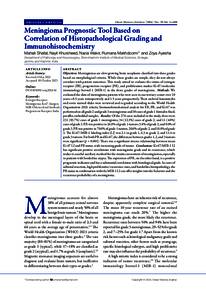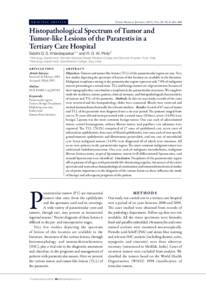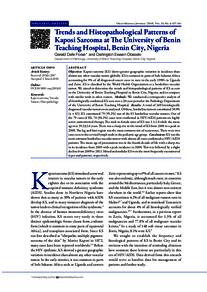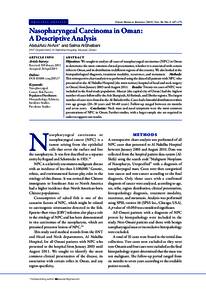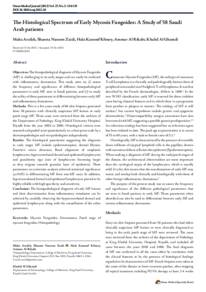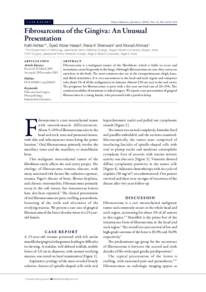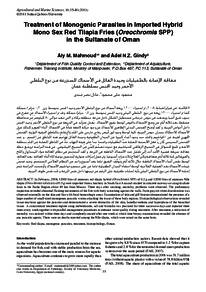وثيقة
Meningioma prognostic tool based on correlation of histopathological grading and immunohistochemistry.
المعرف
DOI 10.5001/omj.2024.56
المصدر
Oman Medical Journal, v. 39, no. 2, e608 p. [1-7].
المساهمون
الدولة
Oman
مكان النشر
Muscat
الناشر
Oman Medical Specialty Board.
ميلادي
2024-03-01
اللغة
الأنجليزية
الملخص الإنجليزي
Objectives: Meningiomas are slow-growing brain neoplasms classified into three grades
based on morphological criteria. While these grades are simple, they do not always
correlate with patient outcomes. This study aimed to evaluate the status of estrogen
receptor (ER), progesterone receptor (PR), and proliferation marker Ki-67/molecular
immunology borstel-1 (MIB-1) in the three grades of meningioma. Methods: We
evaluated the data of meningioma patients who were seen in our tertiary center over 10
years—8.5 years retrospectively and 1.5 years prospectively. Their archival hematoxylin
and eosin stained slides were reviewed and re-graded according to the World Health
Organization 2021 criteria. Immunohistochemical analysis for ER, PR, and Ki-67 was
performed on all grade 2 and grade 3 meningiomas and 30 cases of grade 1 formalin-fixed,
paraffin-embedded samples. Results: Of the 276 cases included in the study, there were
231 (83.7%) cases of grade 1 meningioma, 34 (12.3%) cases of grade 2, and 11 (4.0%)
cases of grade 3. ER was positive in 26.0% of grade 1 tumors, 5.8% of grade 2, and 0.0% of
grade 3. PR was positive in 70.0% of grade 1 tumors, 20.0% of grade 2, and 18.0% of grade
3. The Ki-67/MIB-1 labeling index (LI) was 2.1 in grade 1, 6.3 in grade 2, and 13.4 in
grade 3 tumors. For both PR and Ki-67, the differences between grades 1, 2, and 3 tumors
were significant (p 0.001). There was a significant inverse relationship between mean
Ki-67 LI and PR status, with increasing grade of tumor. Conclusions: Ki-67/MIB-1 LI
has significant positive correlations with meningioma grade and its recurrence, which
makes it a useful auxiliary method for the routine assessment of meningiomas, especially
in patients with borderline atypia. The expression of PR, on the other hand, is a positive
prognostic indicator and has a substantial correlation with histological grade. In cases of
subtotal resection, high proliferative/recurrence rates, and borderline histopathology, the
PR status in combination with the MIB-1 LI can offer insights into the behavior and the
recurrence probability of a meningioma.
ISSN
1999-768X (Print)
2070-5204 (Electronic)
قالب العنصر
مقالات الدوريات

